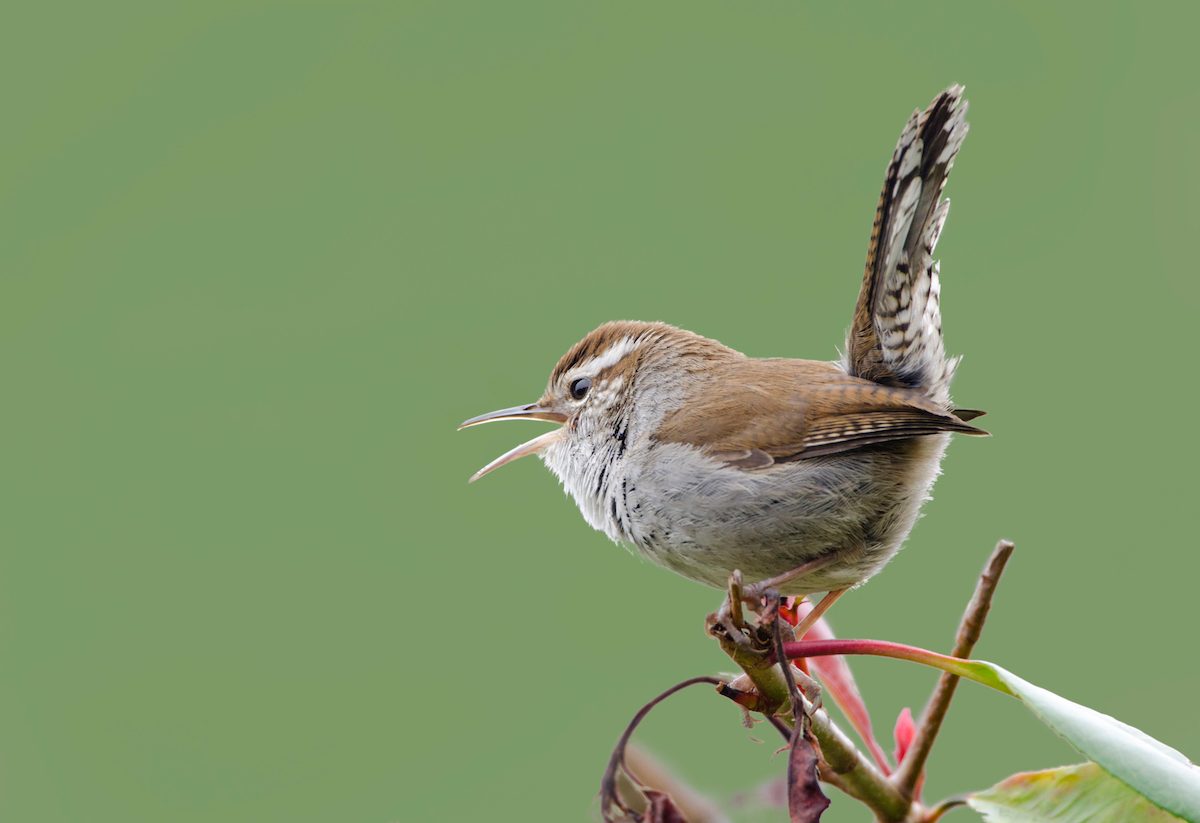Find out what a Bewick's wren looks like and where you can spot one. Plus find out how to attract these small songbirds to your yard.

How to Identify a Bewick’s Wren

On This Page
What Does a Bewick’s Wren Look Like?

A Bewick’s wren (pronounced BU-icks) is a perky brown colored bird with bold, white eye stripes that is found in much of the western U.S. This species looks similar to the Carolina wren that is commonly seen in the East.
Learn how to attract and identify a house wren.
Range

Look for Bewick’s wrens year-round along the Pacific coast and across most of the western United States. Some birds migrate from higher elevations in winter. Though common across their range, these songbirds are rarely spotted east of the Mississippi River.
Head southwest to see a cactus wren.
What Do Bewick’s Wrens Eat?
Insects are the staple of wrens’ diets, so these birds usually skip bird feeders. However, in the west, some wrens, including Bewick’s, can be lured to backyard habitats with native shrubs and brush piles. Look for them hopping and crawling down low as they forage for insects. They may eat some seeds and fruit in winter.
You may also attract them to visit a bird bath, especially if it has a small fountain or dripper. Wrens are attracted to moving water.
“I started offering live mealworms 10 years ago when I saw Bewick’s wrens in my yard,” says Birds & Blooms reader Amy Kernes of Brea, California.
Nesting Habits

Like other wrens, these birds frequently nest in cavities such as old woodpecker holes and manmade nest boxes. If you put out a wren house, place it high enough to be safe from predators, but low enough so you can reach it to clean out in fall.
Did you know: Wrens may build their nests in hanging flowerpots, mailboxes or even the pockets of jeans on a clothesline.
“This is a pair of Bewick’s wrens (above) who used the open end of this post for their nest one year. I love the birds and put a good deal of effort into providing water, food and nesting facilities for them. It is always special to me to witness these tiny little families grow!” says reader Michelle Summers.
Enjoy delightful pictures of wren birds.
Bewick’s Wren Song
Bewick’s wrens can sound different based on where in their range you’re hearing them. The birds learn their songs by imitating neighboring wrens.
Bird sounds courtesy of the Cornell Lab of Ornithology
Next, learn how to tell the difference between a wren vs a sparrow.
Sources
- All About Birds – Bewick’s wren
- National Audubon Society – Bewick’s wren




















